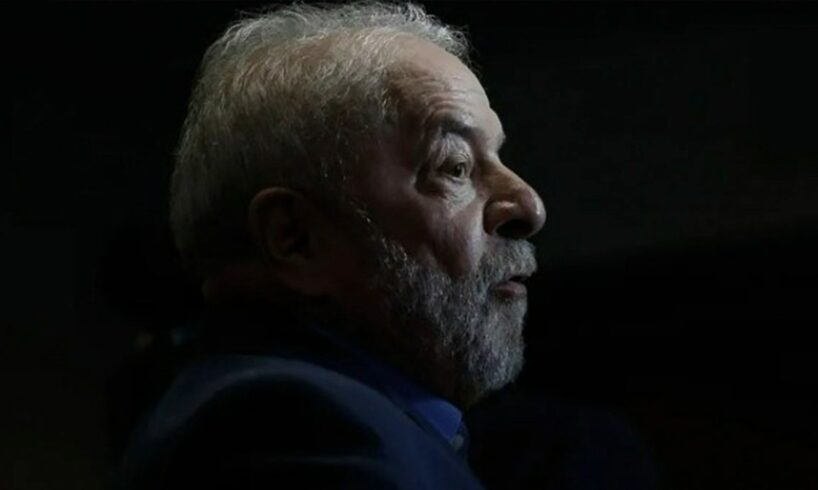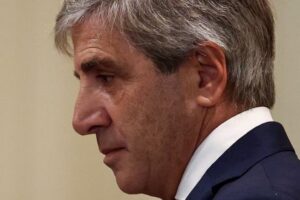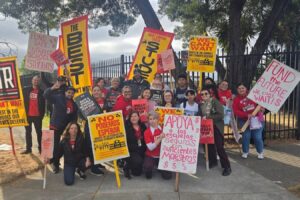
(Op-Ed Analysis) Brazil, Latin America’s largest economy and the Americas’ second largest, now faces the onset of an unprecedented geopolitical storm.
President Luiz Inácio Lula da Silva’s leftist government faces intensifying conflicts with Brazil’s right-wing populists, especially Jair Bolsonaro’s supporters.
Brazil’s activist Supreme Court is also clashing with these domestic forces, deepening the country’s political polarization and public tensions.
Internationally, Lula’s administration confronts growing pressure from a conservative West, newly reinvigorated by U.S. President Donald Trump’s leadership.
Trump recently announced a sweeping 50% tariff on Brazilian exports, citing political persecution of Bolsonaro and attacks on free speech in Brazil.
He specifically condemned Brazil’s treatment of Bolsonaro, calling the ongoing trial a “witch hunt” and criticizing court restrictions on social media platforms.
Already, investor confidence has faltered. Nearly R$5 billion ($900 million) have been withdrawn from Brazil’s financial markets, signaling deep unease even before full confrontation begins.
Brazilian assets are showing mounting signs of underperforming compared to their Latin American peers, amplifying fears for the country’s competitive standing.
The country faces heavy criticism from the U.S. and NATO after officials openly connected Brazilian trade with Russia to rising civilian deaths in Ukraine.
At a July meeting, U.S. officials warned that purchasing Russian oil, diesel, and fertilizer lets Moscow keep funding its military actions that have led to more deaths and destruction.
NATO leaders gave Brazil, along with India and China, 50 days to pressure Russia toward peace, or else face potential tariffs of up to 100% on Russian imports.
The clash between political and institutional forces is putting Brazil’s economy and global reputation at risk, fueling widespread concern.
Prolonged escalation could isolate Brazil internationally and further jeopardize its democracy, amplifying the fear of instability within the nation.
Lula’s Brazil at a Crossroads: How Domestic Strife and U.S. Tensions Risk Brazil’s Global Standing
Judicial Activism vs. Populist Resilience
At the heart of Brazil’s political turmoil is the determined campaign led by Supreme Court Justice Alexandre de Moraes to prosecute Jair Bolsonaro and his allies following the January 8, 2023 riots, when Bolsonaro supporters stormed government buildings in Brasília.
Bolsonaro faces charges of inciting insurrection as judges crack down with arrests and electronic ankle monitoring after police raids.
Strict court orders now restrict Bolsonaro’s social media activity and require surveillance, citing concerns over a potential flight risk.
While Lula’s government and judiciary argue their actions are crucial to preserving democracy and rule of law, Bolsonaro and his followers decry the proceedings as political persecution.
Opinion in Brazil is deeply polarized, with nearly half the population expressing skepticism about the Supreme Court’s impartiality.
Such domestic division has turned Bolsonaro from a controversial former leader into a martyr figure for Brazil’s conservatives, complicating Lula’s efforts to stabilize his government.
Bolsonaro’s House Arrest and Ankle Monitor Signal Rising Tensions with the U.S.
Tech Clashes and Free Speech Debates
Adding fuel to the political fire, Brazil’s Supreme Court, again led by Moraes, has aggressively targeted major U.S.-based tech platforms—such as Elon Musk’s X (formerly Twitter), Truth Social, and Rumble—for allegedly hosting extremist content and refusing judicial orders.
The temporary bans of X and Rumble drew condemnation from U.S. conservatives, casting Brazil’s judiciary as an antagonist to free speech. Musk’s vocal criticism of Moraes amplified international scrutiny, with Musk labeling Moraes as a “tyrant.”
This digital confrontation has become part of a larger narrative promoted by U.S. conservatives, particularly Trump and his allies, who frame Brazil’s aggressive judicial oversight as a symptom of a broader, global “woke” censorship trend.
Rumble, closely aligned with Trump’s media ecosystem, sued Moraes in U.S. courts as part of the escalating “legal war,” reinforcing the international dimension and further escalating what started as a domestic dispute into a serious diplomatic incident.
Rumble and Trump Media Challenge Brazilian Judge Again in US Court Over Data Demand
Trump’s Tariffs: Economic Punishment or Ideological Warfare?
In early July 2025, President Trump dramatically escalated tensions by announcing a punishing 50% tariff on all Brazilian imports into the U.S., effective August 1, explicitly linking the move to Brazil’s judicial treatment of Bolsonaro and American tech companies.
Trump’s move—a remarkable departure from standard trade policy norms—threatens roughly $41 billion annually in Brazilian exports.
Trump further warned to raise tariffs to 100% if Brazil continued close ties with Russia or diverged from U.S. interests.
The announcement caused immediate turmoil: capital flight accelerated, the Brazilian real dropped sharply, and investors dumped Brazilian assets.
In response, Brazil signaled it would retaliate with tariffs on U.S. products and potentially restrict profit repatriation by American companies.
Ironically, the fallout has had unexpected domestic effects—growing economic anxiety has actually consolidated support for Lula’s government, complicating the opposition’s position and injecting new momentum into left-wing forces.
Brazil’s Soul Tested by 50% U.S. Tariffs: Pride, Anger and Unity in the Face of ‘Tarifaço’
Isolation Fears and Geopolitical Realignment
Trump’s tough approach to Brazil reflects a larger ideological shift now unfolding on the global stage.
With countries like Argentina under the pro-market, libertarian leadership of President Javier Milei becoming new U.S. favorites, Brazil risks isolation as it remains committed to leftist governance and judicial activism.
This dynamic creates real economic peril: trade barriers could trigger unemployment, inflation, and significant reductions in foreign investment.
Further complicating matters, Brazil’s commitment to the BRICS alliance and Lula’s multipolar foreign policy agenda antagonize the Trump administration, which openly warns nations away from what it considers “anti-American” financial or geopolitical alliances.
This places Brazil squarely in the crosshairs of a broader geopolitical struggle—forced to choose between global independence and the harsh economic realities imposed by Washington’s ire.
Trump’s tariffs likely aim to strengthen negotiation power. Meanwhile, Brazilian leaders see rising domestic support for counter-tariffs.
U.S. Blames Brazil’s Multi-Billion-Dollar Purchases from Russia for Rising Civilian Deaths in Ukraine
The Venezuela-Iran Precedent
For Brazil, the current trajectory risks leading the nation toward the kind of isolation faced by Venezuela or Iran, states ostracized for ideological defiance of the U.S. and major Western allies, if escalation continues.
The historical precedent is clear: when political defiance escalates into diplomatic and economic confrontation with Washington, the fallout in the West can include economic stagnation, capital flight, inflation, and social instability.
While parallels to Venezuela or Iran highlight worst-case perils, Brazil’s economic diversification and diplomatic leverage may prevent full estrangement, unlike those more isolated regimes.
Brazil’s economy is deeply integrated into global markets, magnifying the potential damage from prolonged estrangement.
The European Commission and elites remain attached to “woke” values, even as many European countries and their citizens shift toward nationalism.
They might eagerly embrace a shunned Brazil, but this welcome may be short-lived. Europe, too, will struggle to resist the rising conservative wave sweeping the West.
Economic analysts increasingly fear Brazil could enter a cycle of stagnation and isolation if Lula’s government does not recalibrate policies and rhetoric soon.
No Retaliatory Tariffs: Mexico Prioritizes Stability in Face of U.S. Trade Moves
Brazil’s Way Forward
Lula’s administration faces stark choices: stand firm on judicial independence and risk deeper economic harm, or strategically moderate to de-escalate international tensions.
Domestically, Lula could work to ease polarization by concluding Bolsonaro’s trial decisively yet fairly, avoiding further radicalization of Bolsonaro’s supporters.
Internationally, diplomatic backchannels remain open and Brazil retains leverage through its strong commodity markets, BRICS alliances, and EU trade relations, providing potential paths toward pragmatic compromise.
Conversely, Trump’s tariffs and warnings could be partly bargaining tactics rather than permanent positions, meaning that careful Brazilian diplomacy might yet defuse the situation.
But the clock is ticking. Markets crave certainty and stability; prolonged ambiguity or escalation could permanently damage Brazil’s reputation as a reliable economic partner.
Trump Calls BRICS a “Fading Group,” Says Rio Meeting Was Barely Attended
Conclusion: High Stakes at a Crossroads
Brazil stands at a defining juncture. Lula’s government now faces the challenge of defending its legitimacy while trying to avoid punitive international isolation.
Its actions will determine whether Brazil remains a vibrant, globally integrated economy or retreats into economic and diplomatic pariah status, suffering profound damage as right-wing populist forces reshape global politics.
As Trump’s America openly sides with Bolsonaro’s camp, Brazil’s internal political drama has exploded into a broader international ideological struggle.
The decisions made in Brasília and Washington over the coming months could reshape Brazil’s global standing and economic health for decades. The stakes could hardly be higher.
Sources: Comprehensive analysis based on Rio Times reporting (2024-2025), augmented by additional context from international news agencies including Reuters, The New York Times, AP News, CNN, BBC, and recent X posts.





